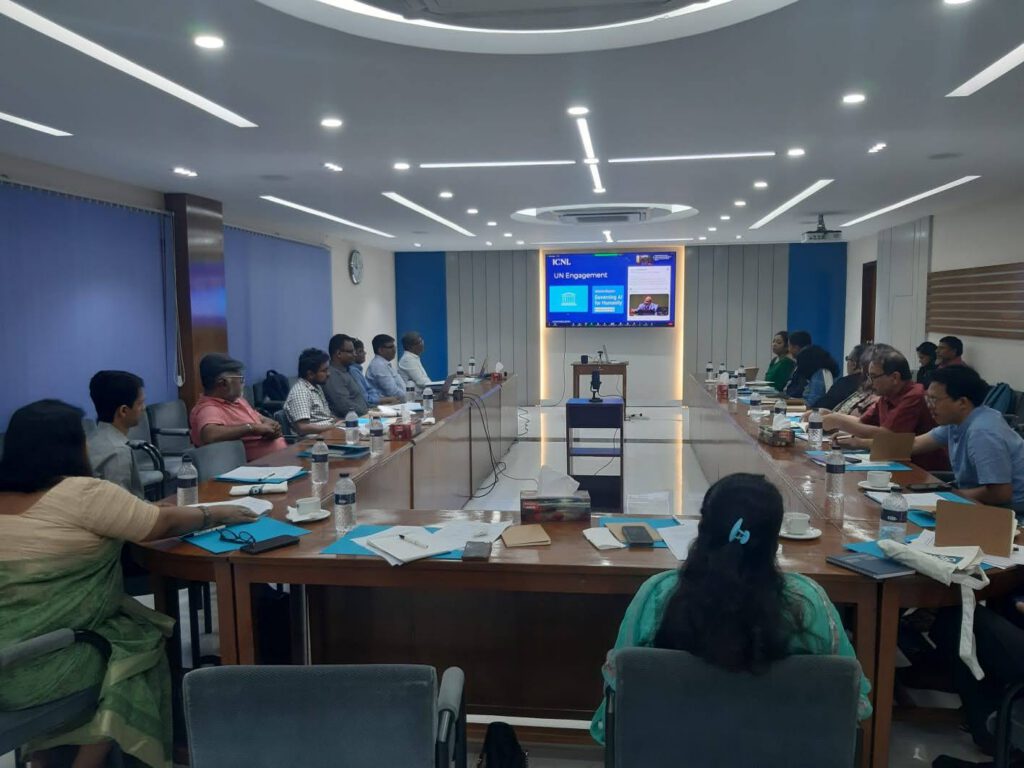On April 29, Digitally Right, in collaboration with ICNL, held a workshop focused on legislative issues titled “Understanding the Draft National AI Policy.” The session was attended by 17 participants, including representatives from media outlets, environmental organizations, human rights defenders, and gender activists. The workshop aimed to raise awareness, strengthen advocates’ capacity, encourage in-depth discussions, and develop strategies to influence changes to the Draft Policy. Shabnam Mojtahedi, Legal Advisor for Digital Rights at ICNL, delivered a presentation on the Draft AI Policy and its implications, followed by a discussion on strategies for engaging with the government on the issue. Participants also shared their individual concerns regarding the Policy.
During the workshop, ICNL’s presentation highlighted common concerns about AI and its potential impact on human rights. Shabnam then discussed best practices for consulting and engaging with the government on AI-related issues. She also pointed out that the lack of a globally accepted definition of AI has resulted in the Draft Policy being vague and broad. Since no jurisdiction has established standalone AI laws, there are no clear precedents for treating AI as a separate legal issue.
Participants at the workshop agreed that the government should base the AI Policy on international best practices, with civil society organizations (CSOs) playing a key role in bridging the gap between the government and global partners. They emphasized the need for effective and diverse engagement in the policy process. It was noted that the Draft Policy lacked impact assessment, monitoring, and evaluation mechanisms, which need to be addressed. While national security carve-outs are common in AI policies worldwide, participants stressed the importance of strong oversight in this area to prevent data abuse.
Following the presentation and Q&A session, participants held an open discussion to identify strategies for influencing the government to amend the Draft AI Policy. Three strategies emerged. The first is to file a Right to Information (RTI) request, seeking details on which CSO representatives were involved in the consultation and drafting process, and to challenge the legality of the Policy, as it is required by law to be drafted in Bangla rather than English. The second strategy involves rallying public support to delay the Policy’s implementation, eventually pushing for its repeal on the grounds that it is not functional. Some participants suggested pursuing both strategies simultaneously.
The third strategy proposed is the creation of a national alliance consisting of CSOs and AI experts. This alliance would engage with grassroots communities, gather their feedback, and present it to international forums.

